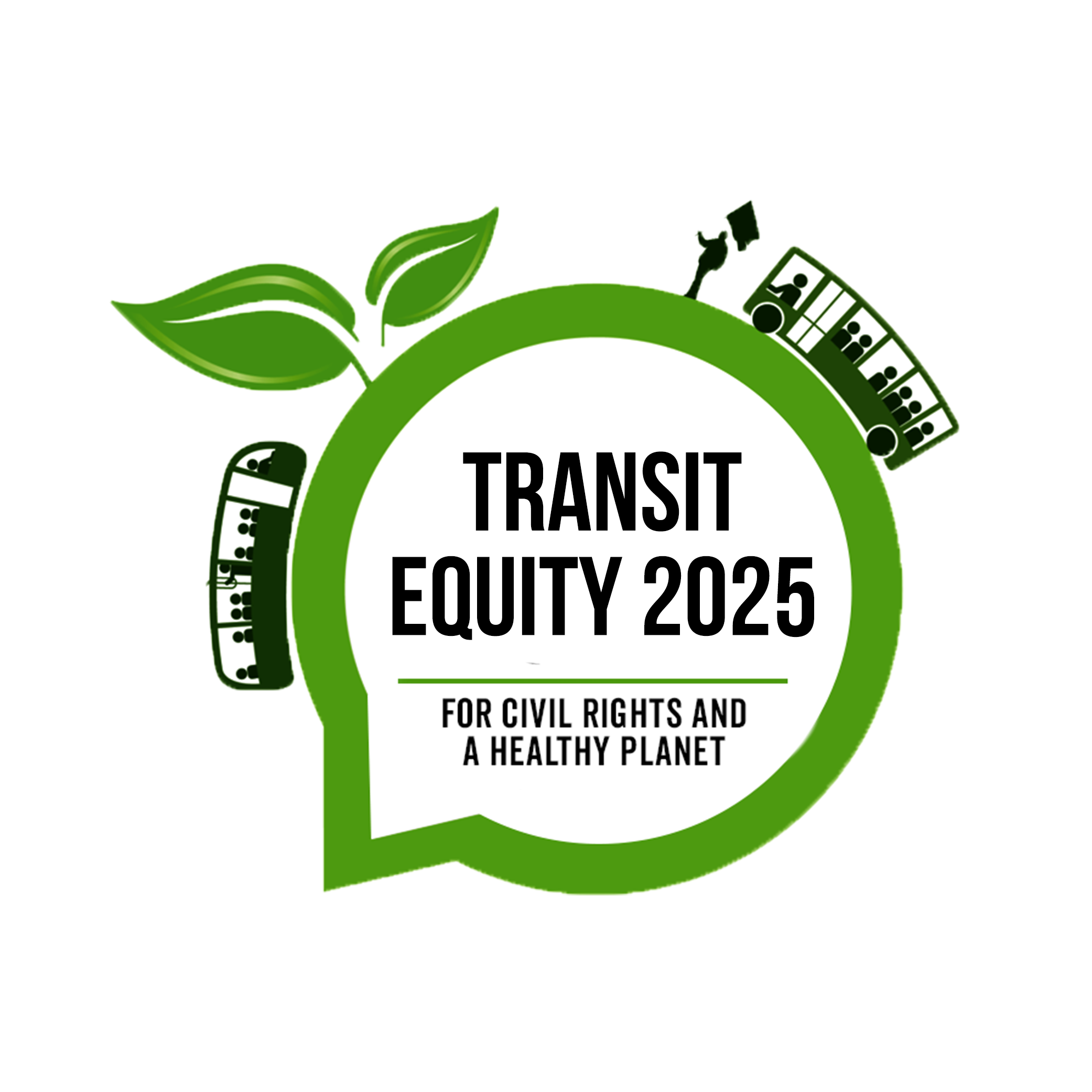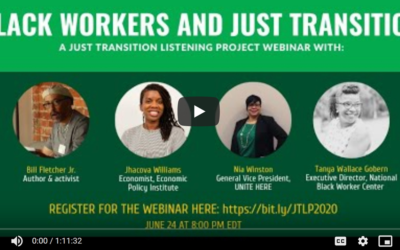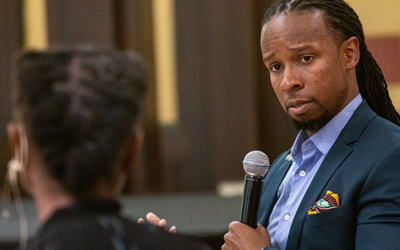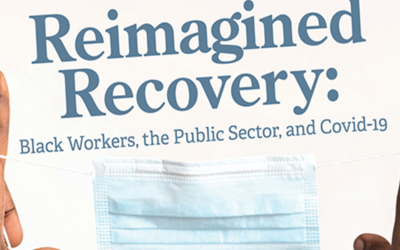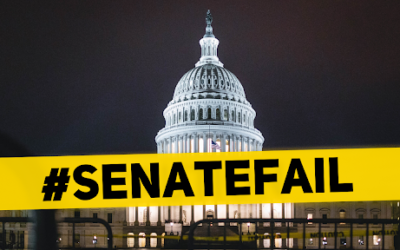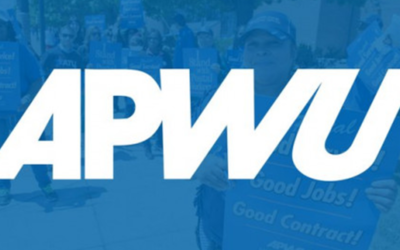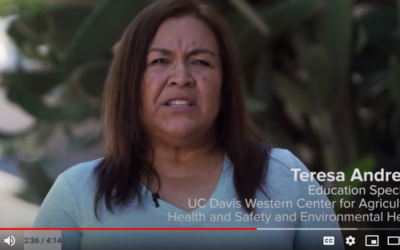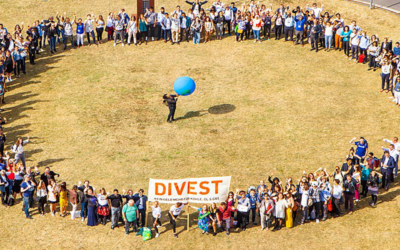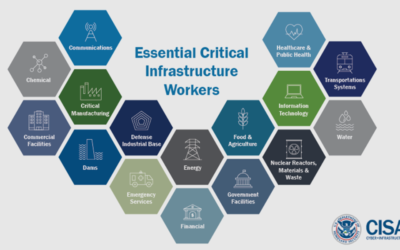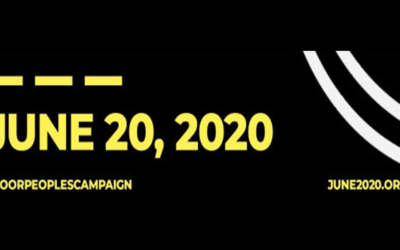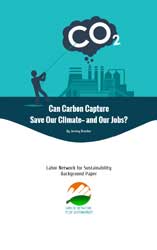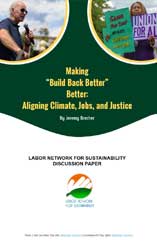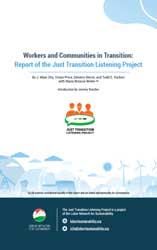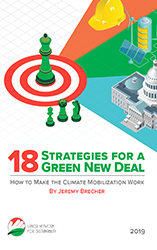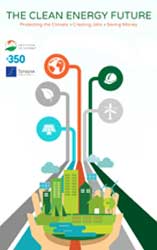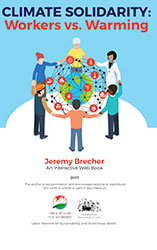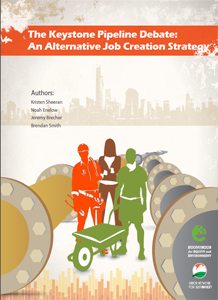SIGN UP FOR LABOR-CLIMATE MONTHLY NEWSLETTER
LABOR & CLIMATE NEWS
Strike for Black Lives
On July 21, the Labor Network for Sustainability joined more than fifty unions, civil rights organizations, environmental groups, and others in the first Strike for Black Lives. Lead organizers of the action were the Service Employees International Union (SEIU) and the Movement for Black Lives (M4BL).
LNS Webinar Explores the Origins of ‘Just Transition’
“Just Transition” has become one of the most common—and most controversial—themes in the Labor-Climate movement. On July 22, the Labor Network for Sustainability helped illuminate the idea with a webinar on “Just Transition: Love It, Hate It – You’ve Heard the Term, Now Hear the Story.”
The Pandemic May Be a Preview of Our Climate Future
Todd E. Vachon, faculty coordinator of the Labor Education Action Research Network (LEARN) in the School of Management and Labor Relations at Rutgers, The State University of New Jersey and an active trade unionist and member of the Labor Network for Sustainability, recently wrote an article in the New Jersey Star-Ledger. Warning that “The Pandemic May Be a Preview of Our Climate Future.”
Protecting Workers from Extreme Heat
The House Select Committee on the Climate Crisis has recently released a report on “Solving the Climate Crisis” calling for a federal heat safety standard.
‘Black Workers and Just Transition’ Inspires, Engages and Uplifts
For 75 minutes on Wednesday night, June 24, an esteemed group of speakers and some of the best minds in labor, economics, and the environment came together for our latest Just Transition Listening Project webinar: Black Workers and Just Transition.
Organized Labor & the Movement for Black Lives
Racial justice advocates often say that in order to achieve a racially equitable society we cannot just be “not racist,” but that we must be actively anti-racist. Ibram X. Kendi, a preeminent antiracism advocate and historian said that “Being an antiracist requires persistent self-awareness, constant self-criticism, and regular self-examination.”
Reimagined Recovery
A new report Reimagined Recovery: Black Workers, the Public Sector, and COVID-19 argues expanding jobs in the public sector is the starting point in recovery efforts that place racial equity at the core.
#SenateFail #DoYourJob July 8 Day of Action
On July 2nd, the Senate will head home for vacation having done nothing to effectively address systemic racial injustice, respond to the public health and economic crises spurred by the Coronavirus pandemic or fund essential services to provide relief to communities and workers.
Let Us Rise in 2020!
This is an excerpt from an article that first appeared in the January/February 2020 edition of American Postal Worker magazine.
Heat from Global Warming Killing American Workers
An article in The Guardian blows the whistle on the little-recognized threat of climate change to workers. In 2018, 60 workers died due to temperature extremes, according to the most recent Bureau of Labor Statistics data on workplace fatalities.
Resource: City Divestment Toolkit and Implementation Guide
Workers who see the recent gyrations and crashes in coal, oil, and gas stocks may wonder what it all means for their pension funds.
Railroad Workers United Adopts Essential Workers Resolution
An LNS organizational member, Railroad Workers United, held a Steering Committee meeting in June, where members adopted a Resolution on Essential Workers.
Join the National Call for a Moral Revival, June 20, 2020
The Mass Poor People’s Assembly and Moral March on Washington will be the largest digital gathering of poor, dispossessed and impacted people, faith leaders, and people of conscience on June 20, 2020.
In Memory of Chaz Wheelock
We dedicate this issue of Making a Living on a Living Planet to Charles “Chaz” Tsyaktati Wheelock, one of the co-founders of the Indigenous Environmental Network (IEN).
Fight for the Rights of Essential Workers
Whether they are healthcare workers, bus drivers, janitors, factory workers, or firefighters, people who are declared “essential workers” and are therefore required to go to work in the midst of the coronavirus pandemic face many of the same threats.
